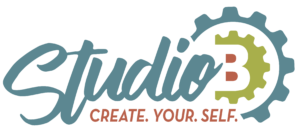
Every January, millions of people set ambitious New Year’s resolutions: lose weight, exercise every day, eat healthier, and reduce stress.
But by mid-February, the excitement fades, and the majority of resolutions are left behind. In fact, studies show that nearly 80% of New Year’s resolutions fail. Why is that? And what can you do instead to actually achieve your goals this year?
Let’s bust a few common myths about New Year’s resolutions and explore sustainable strategies for lasting change.
Myth #1: “Resolutions Fail Because You Lack Willpower"
One of the biggest myths about resolutions is that they require constant willpower. While determination helps, relying solely on willpower is a recipe for burnout. Willpower is like a muscle—it gets tired, especially when life throws challenges your way.
What to Do Instead:
Focus on building systems and habits that work for you. For example, instead of forcing yourself to “exercise every day,” create a routine where movement naturally fits into your schedule. Start small, like committing to a 10-minute walk after lunch. Habits are easier to sustain than constantly relying on self-discipline.
Myth #2: "Go Big or Go Home".
Many resolutions fail because they’re too drastic or unrealistic. Deciding to cut out all sugar or work out seven days a week sounds great in theory, but these extreme goals can feel overwhelming and hard to sustain.
What to Do Instead:
Set small, actionable steps that build toward your larger goal. Want to eat healthier? Start by adding one extra serving of vegetables to your meals each day. Want to get stronger? Commit to two strength-training sessions per week instead of seven. Small steps are easier to maintain and create momentum for long-term success.
Myth #3: “Set It and Forget It”
Another common misconception is that setting a resolution is enough to guarantee success. But without tracking progress or adapting to challenges, it’s easy to lose motivation and direction.
What to Do Instead:
Use a goal-setting framework like SMART goals—Specific, Measurable, Achievable, Relevant, and Time-bound. For example, instead of saying, “I want to reduce stress,” set a goal like, “I will practice 10 minutes of deep breathing three times a week.” Regularly check in with your progress and celebrate small wins along the way to stay motivated.
What to Do Instead of Resolutions
- If resolutions aren’t the answer, what works? Here are three strategies to help you create meaningful, lasting change:
- Set Intentions, Not Resolutions
Focus on how you want to feel rather than rigid outcomes. For example, instead of “lose 20 pounds,” aim for “feel more energized and confident.” Intentions give you flexibility while still guiding your actions.
- Build a Support System
Achieving goals is easier with support. Share your intentions with a trusted friend, coach, or group. Programs like Studio B’s Mind Over Matter Monthly Coaching provide guidance, accountability, and a supportive community to help you stay on track.
- Prioritize Progress Over Perfection
Remember, it’s not about being perfect—it’s about making progress. Even small steps count. If you miss a workout or indulge in a treat, don’t let it derail you. Adjust, refocus, and keep moving forward.
Make This Year Different with Studio B
At Studio B, we believe in sustainable, integrative wellness. Whether your goal is to move more, eat better, or manage stress, we’re here to help you create a plan that works for your life.
Skip the unrealistic resolutions this year and focus on building habits that stick. Join us for personalized coaching, movement therapy, cooking classes, or our Mind Over Matter Monthly Coaching Program to start your journey toward lasting mental and physical wellness.
Ready to Take the 1st Step?
Connect with us and together, let’s make 2025 your most balanced and successful year yet!
Contact Us Today!Conclusion
Resolutions may not always stick, but that doesn’t mean your goals are out of reach. By shifting your approach, building habits, and seeking support, you can create meaningful change that lasts beyond January. Let’s bust those resolution myths together and make your goals a reality.
#GoalSettingSuccess #SustainableChange #NewYearNewYou #NewYearsResolutions #GoalSetting #HabitBuilding #MindOverMatter #StudioB”


